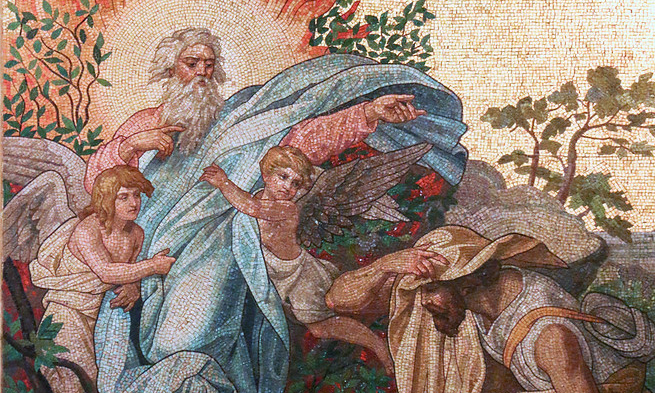St. Augustine says that all of the perfection of the Christian life is found in Christ’s teaching in the Sermon on the Mount (Matt 5–8). And in this sermon, Jesus begins with the Beatitudes: “Blessed are the . . . for they shall . . . .” The Beatitudes are not just another list of Catholic facts to be memorized. Put bluntly, they are the rewards of the Christian life. They are the ultimate end of our following Christ. Jesus begins his teaching with the Beatitudes because, if we do not know where we are going, then it is rather difficult to get going!
The sixth beatitude—”Blessed are the pure in heart, for they shall see God” (Matt 5:8)—is the crown jewel of the rewards offered by Christ. All of the Scriptures cry out with longing for the sixth beatitude. From their very beginning, the Scriptures refer to the deep and grasping desire of men to be like God and to get hold of something divine. It is a good desire, but often, when we pursue it on our own terms, it goes badly: from Adam and Eve seeking a knowledge of good and evil—and particularly wisdom (Gen 3:6)—to the builders of the Tower of Babel seeking to raise themselves up to the heavens (Gen 11:1–9).
Moses is representative of the entire Old Testament in his God-given desire to see God. He had seen numerous signs of God’s power—the burning bush, plagues in Egypt, parting of the Red Sea, defeat of the Egyptian army, manna from heaven, water from the rock—yet Moses knew that all of these things were merely the signs and effects of God. They were not God Himself. He had yet to see the God of Israel. Moses begs for one final and superior revelation: “Please let me see your glory!” (Exod 33:18).
God partially grants to Moses what he seeks. He will show “his goodness” to Moses and utter the Divine Name before him, but the Lord is clear: “you cannot see my face; for man shall not see me and live . . .” (Exod 33:19–20). Instead of showing his face, God permits Moses to see his back, and even this may only be done from a cleft in the rock with God’s hand covering Moses until he passes by (Exod 33:22–23).
But with the sixth beatitude, Christ proclaims himself as the New Moses, who brings to completion what Moses and all of the righteous in the Old Testament sought and did not find—to see God. St. John writes that “we shall be like him, for we shall see him as he is” (1 John 3:2). We will no longer see merely the effects of God or a sign of his divine presence. Moses was able to see signs and effects. No. Our Lord promises us in the sixth beatitude that we shall see God in his very essence.
We echo with confident hope the yearning of the Psalmist: “My heart says to you, ‘Your face, Lord, do I seek.’ Hide not your face from me” (Ps 27:8-9). This vision of the Lord is nothing but the beatific vision, eternal life, the supernatural end of man. What was denied to Moses is offered freely to us in Christ.
✠
Photo by Lawrence Lew, OP (used with permission)







